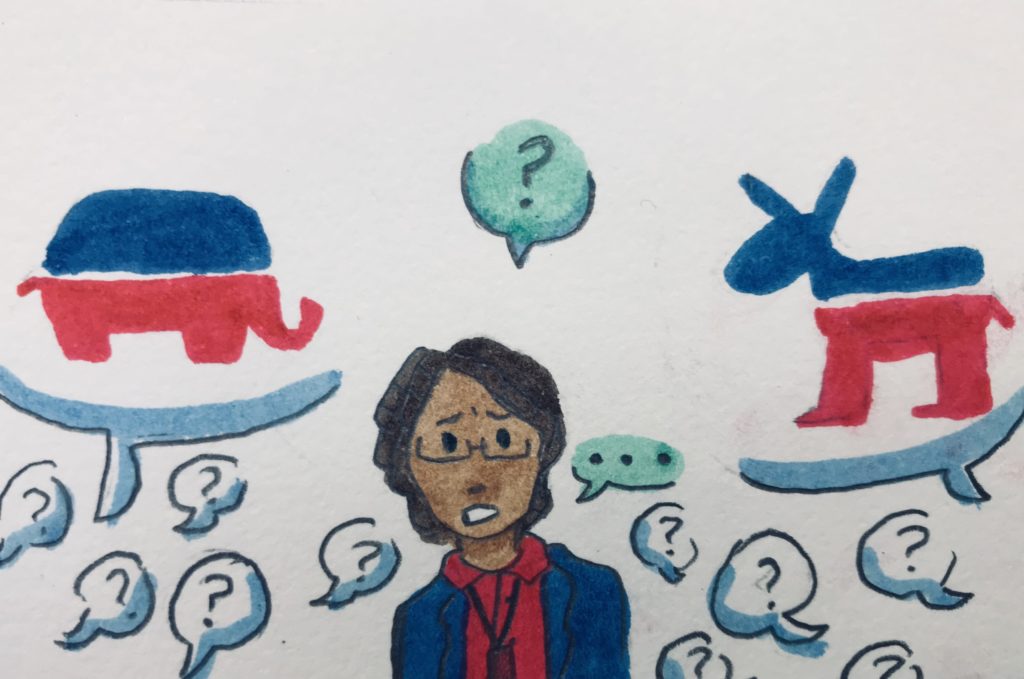It isn’t uncommon for us as high school students to talk amongst each other about our teachers’ political beliefs. We know which teachers are Republicans, which are liberals, and for those whose affiliations aren’t as crystal clear, we usually can speculate where they fall on certain issues or what their beliefs are about certain ideas.
Our knowledge of teachers’ deepest beliefs and stances doesn’t come from any type of incredible brainpower or relentless investigative skills. Every day, we gather more and more about what teachers in the building believe because they often tell us straight up during class. Even the most apolitical of teachers often manage to sneak biased information into lessons when the topic at hand has ties to a political issue.
Opinions are everywhere, and its hard for teachers NOT to make it clear where they stand, despite the negative connotation surrounding them doing so. Teachers often stop themselves before saying something that could be controversial, assuming that their students don’t want politics brought into their education.
Despite these conceptions, we think that teachers should be able to share their political opinions to their classes when the subject is relevant to class. Political opinions foster discussion and these discussions are important conversations to be exposed to while students are still in high school.
Teachers, unlike students, have often had time and life experience to learn about multiple viewpoints and understand political issues. Teachers are a safe source and have an effective method of educating students about topics. When teachers present their opinions in class, students learn a new perspective and gain a new understanding of where a viewpoint is coming from.
In addition, because all teachers hold different opinions, students would not be subject to exposure towards only one opinion on each topic.
School is often seen an an environment where controversy and opinions should be suppressed, but the reality is that the sharing of opinions fosters growth and biases are unavoidable.
Teachers should not be held on such a short leash when it comes to the sharing of opinions and should be allowed to share what they believe, just as everyone else can.
There is no reason to invalidate the opinions of teachers merely because theur job is to stand in front of a high school classroom.
In fact, when teachers choose to share their opinions, it can actually be a positive for the initiative of education.
With high school aged students newly forming their opinions, discussions about what teachers believe have the ability to stem into further conversation. If students feel they are in an environment where they can state what they believe and discuss with others, the sharing of numerous opinions is facilitated. This leads to greater understanding of others and a broader viewpoint.
As we see it, to tell teachers not to talk about politics in class or to shame them for doing so actually shuts down healthy disagreement and takes away from the learning that occurs naturally when diverse groups of people represent themselves by talking about their values and beliefs.
Politics belong in high school classrooms because the purpose of education should be to learn about relevant topics and possess a better understanding of the real world.

